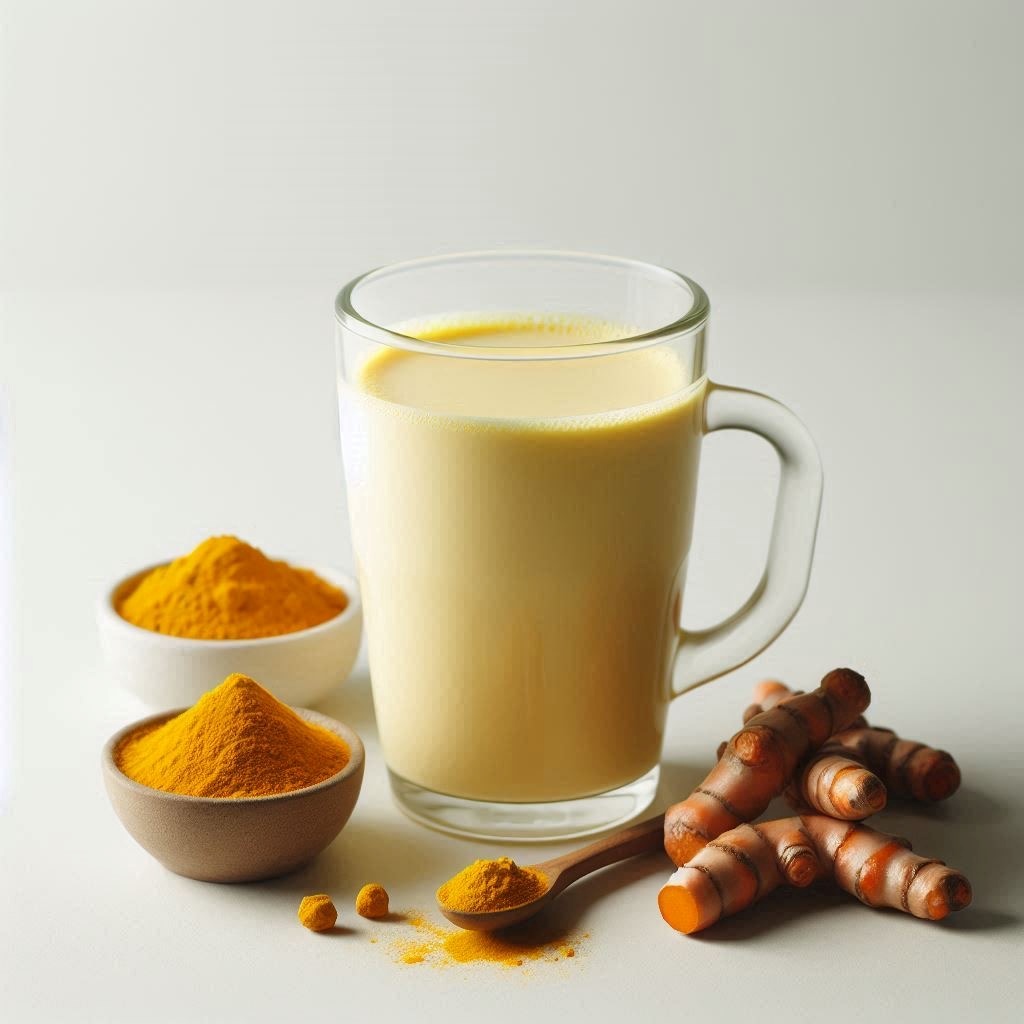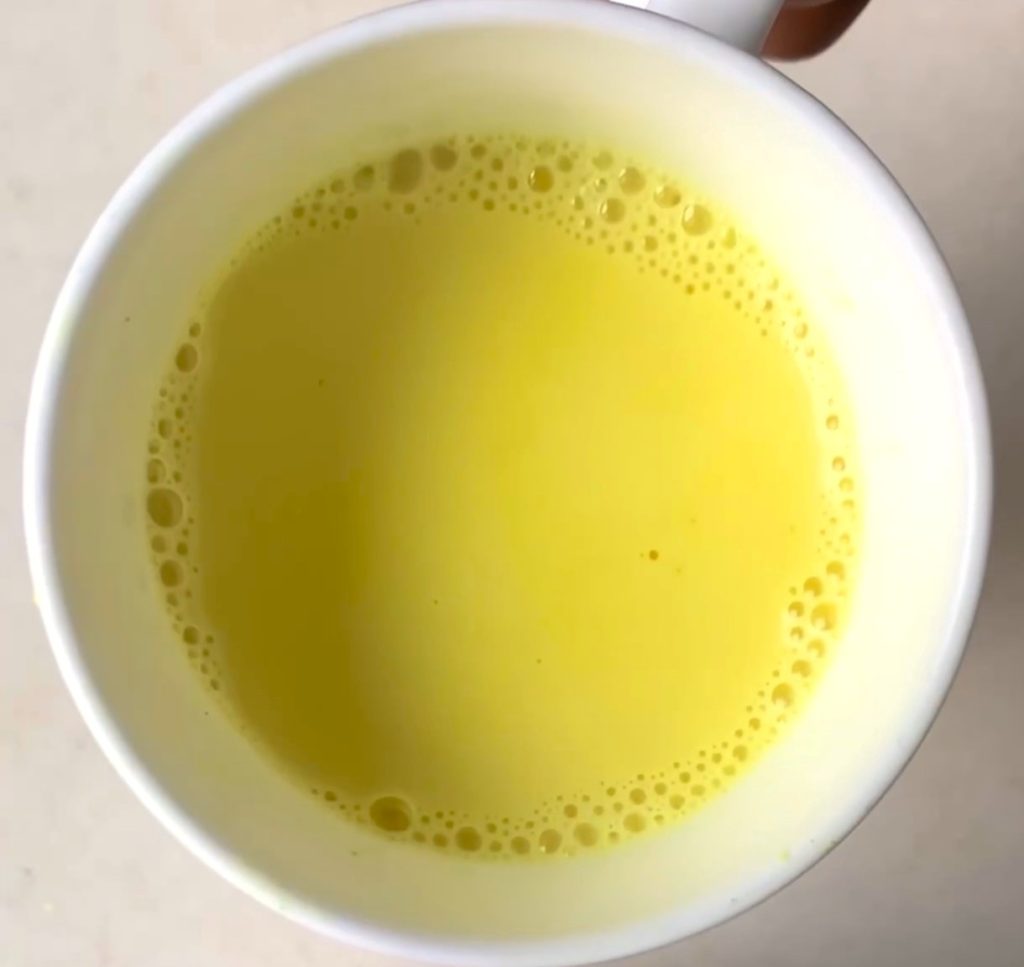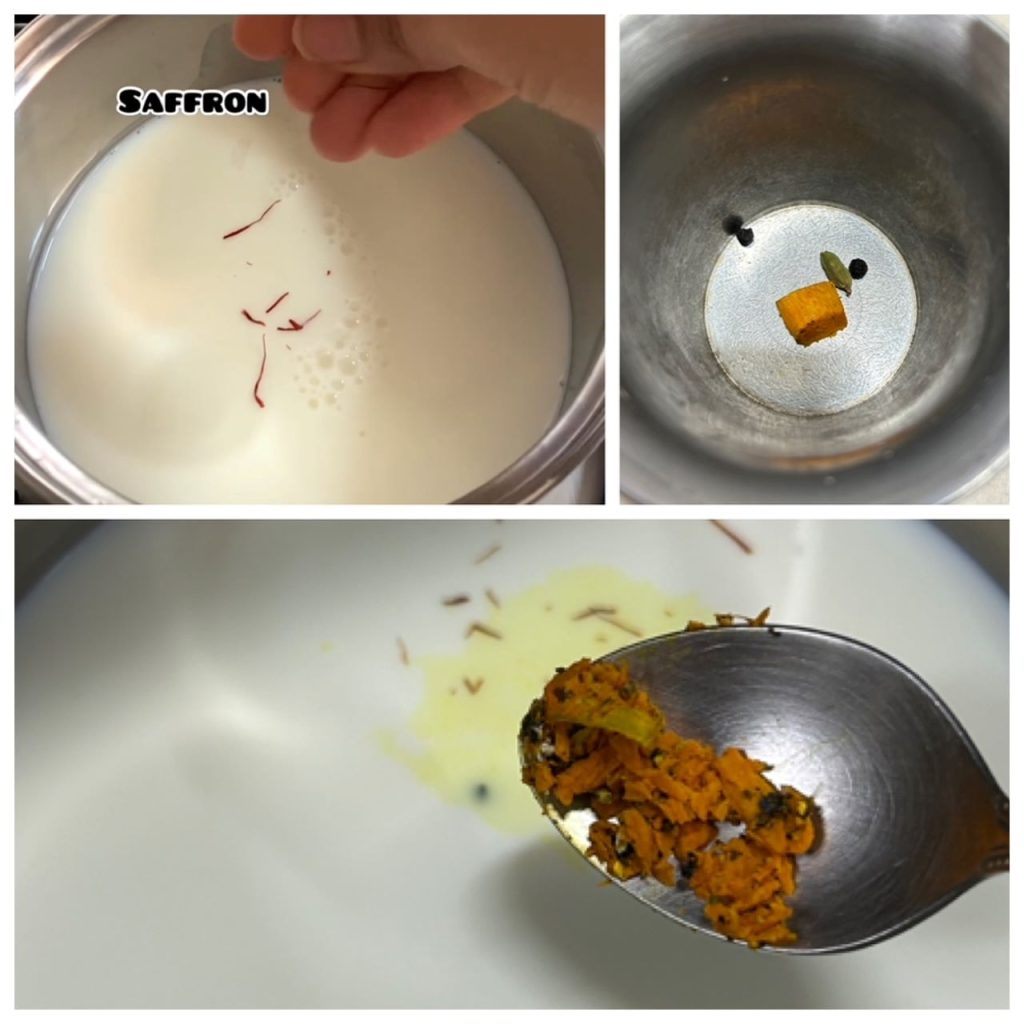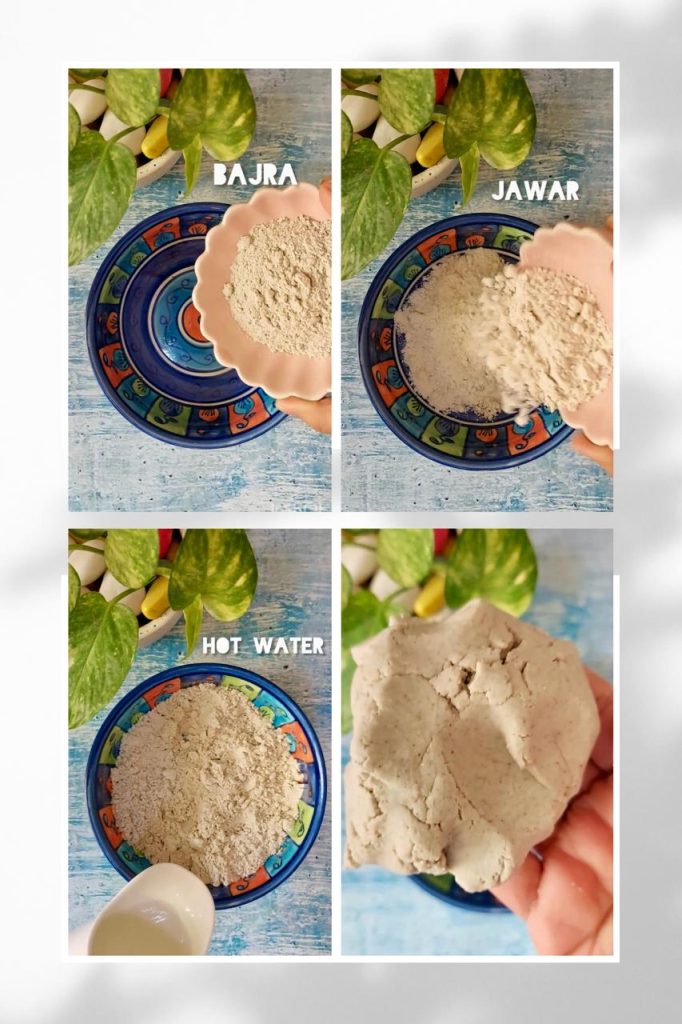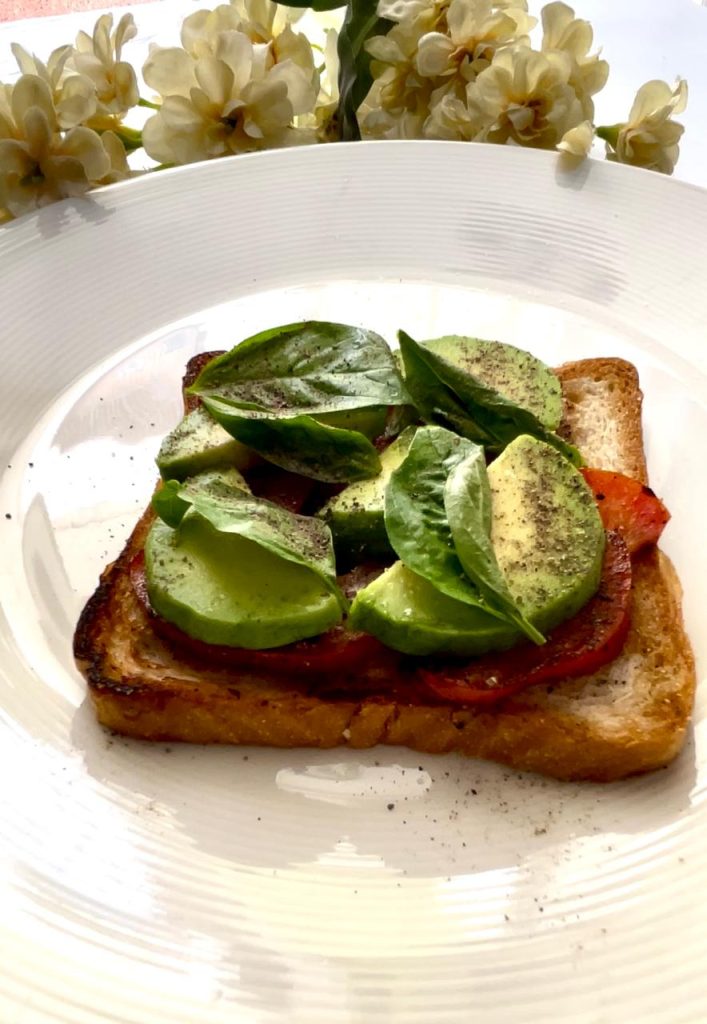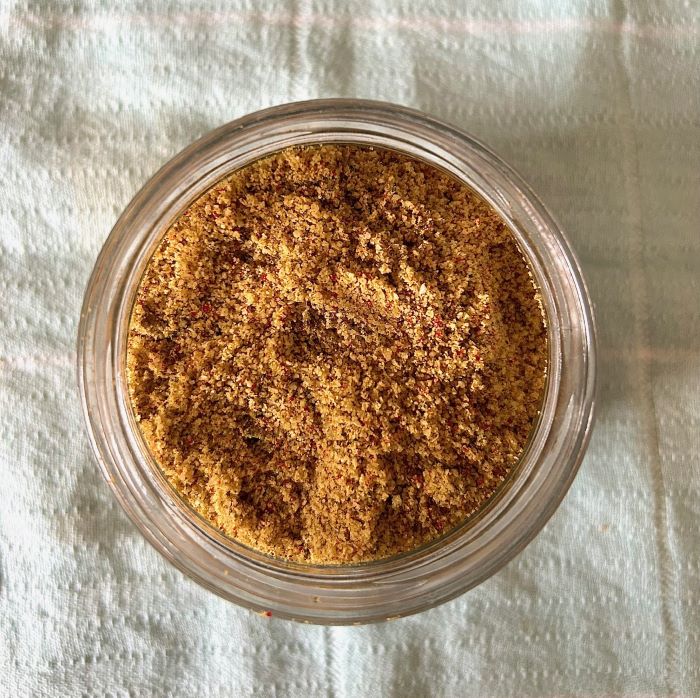
If you have never heard of podi before, podi is a flavourful South Indian coarse spice powder condiment made with lentils, seeds and spices and served with Idlis. But for most fans, you can say podi is an emotion. It is like a flavour imbibed in every bite. Podi is a general South Indian word that means “powder”. In the Tamil language, the word milagai means red chilies and podi means powder. Idli podi is always served with ghee or sesame oil. There is a popular dish in South India where idlis are smeared with podi and ghee or sesame oil. But Idli Podi is not just limited to idlis. You can serve podi with paniyarams, sprinkle it on dosas, uttapams or make podi rice. Its main purpose is to add flavour to a meal, sometimes when certain spices are involved, podis can aid digestion too.
The flavour of podi is quite unique and tasty. There is a slight crunch in it that comes from roasted lentils. The nutty taste comes from sesame seeds with some smokiness and pungency from red chilies and other ingredients.
You can try serving podi with Ragi Idli. They pair beautifully with podi and other sautéed vegetables and makes a healthy, gluten free breakfast.
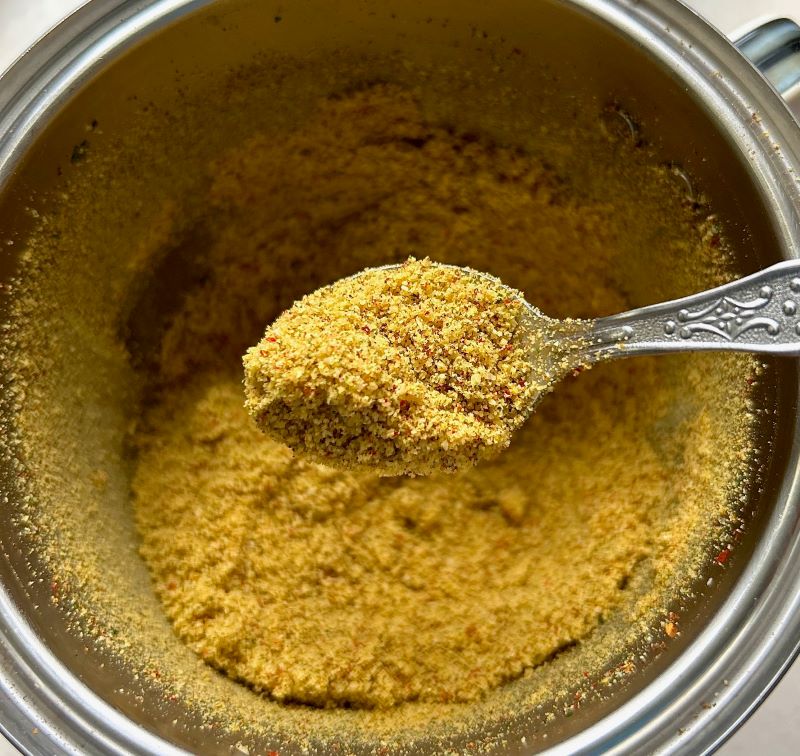
The recipe is pretty simple. You just have to roast the ingredients and grind everything together. There is some spiciness and heat in a typical milagai podi but you can control the heat as per your preference. There are variations to idli podi where some like to add dry coconut, curry leaves or peanuts.
There is another variation of idli podi called as gunpowder which is spicy and includes more red chilies as well as garlic.
The podi recipe that I am sharing with you is a recipe that I have been making for years now. There is always a jar of podi at my house. I like to add this powder in Masala Idli, sprinkle it on dosa, serve it with paniyarams or make podi rice with ghee.
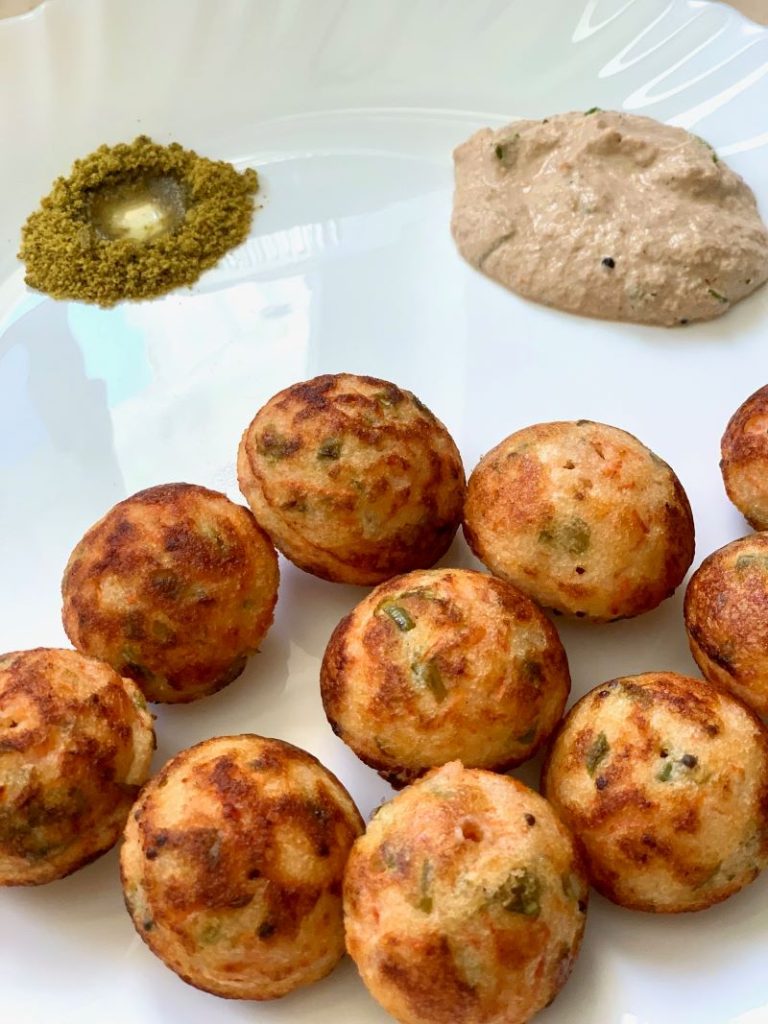
Tips for making Idli Podi
- Always use fresh spices and lentils to make podi.
- It is always better to soak lentils for an hour in warm water and dry them with cotton kitchen towel before roasting.
- I always add sesame seeds to make podi. It gives a great flavour and also is super nutritious. You can skip it if you like. You can use either black or white sesame seeds.
- Rinse curry leaves with fresh water and then pat dry them with a kitchen towel.
- Do not roast sesame seeds for long or it will taste bitter.
Let’s see how you can make this flavour bomb.
Recipe: makes approx 200 grams
Ingredients:
- Urad dal: 1/2 cup
- Channa dal: 1/4th cup
- Curry leaves: 1/2 cup
- Sesame seeds: 1/4th cup
- Dried Red Chillies: 12-15 (add more if you like)
- Mustard seeds: 2 tsps
- Hing/Asafetida: 1/4th tsp
- Oil: 2 tbsps
- Salt as per taste
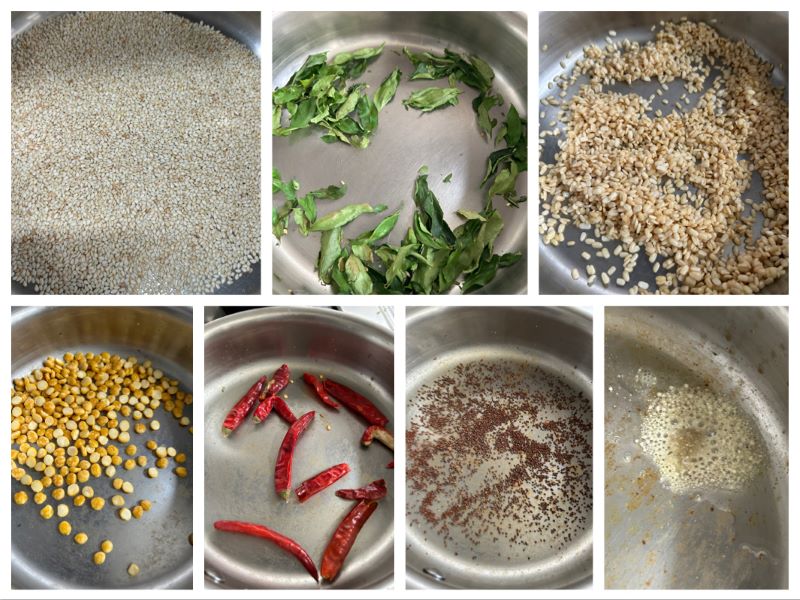
Method:
- Wash and soak both the lentils separately for an hour in warm water. This step is optional. You can just wash the lentils, pat dry and roast them but soaking helps to soften the lentils and makes them easy to digest.
- Bring a wide heavy bottom pan to medium heat. Add sesame seeds and roast them till they become slightly brown and start crackling and popping. Set aside in a large plate.
- Roast curry leaves till the leaves become crisp and shrink in size. Set aside.
- Now add washed, soaked and towel dried urad dal. Roast till golden brown and fragrant. Set aside.
- Add channa dal and roast. Chana dal takes longer to roast. It should get browned or golden. For uniform cooking and color, keep on stirring them often.
- Now add a tbsp of oil and roast dry red chilies on a low flame. Roast till you get a pungent smoky aroma from chilies. Set aside
- Next add mustard seeds and roast them till they start crackling and popping in the pan. Set aside.
- Lastly, add a tbsp of oil and cook asafoetida or hing in it for 10-15 seconds. Mix it with the other roasted ingredients.
- Once everything is well roasted, put it all in a blender. Add salt to taste and grind well. Grind in intervals of some seconds to a coarse powder. Do not grind in one go for long as the sesame seeds will release oil.
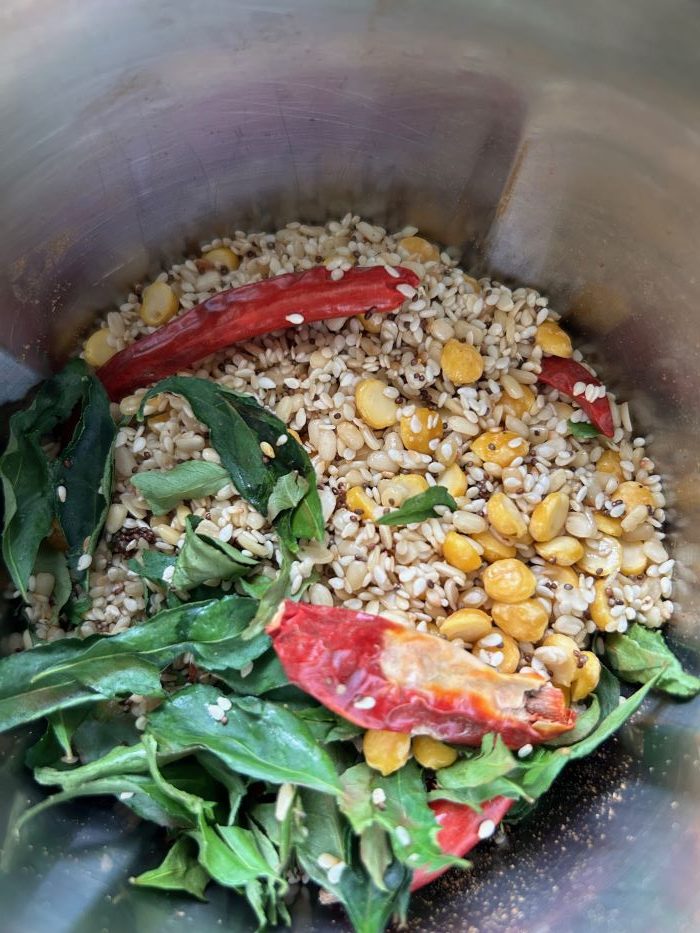
- Store Podi in an airtight glass jar. The powder will last you almost a year.
Happy Cooking!! 🙂
Do give this recipe a shot. If you try this recipe, do give us a shout out. Just click a picture and tag us on @masala.monk or use the hashtag #MasalaMonkRecipe and share on Instagram and Facebook. We would love to hear from you. 🙂

